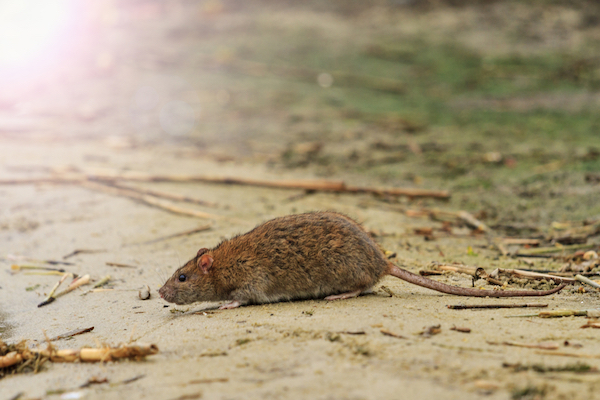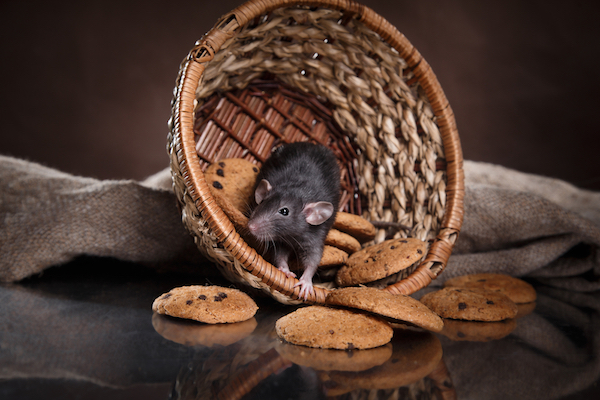Rodents like rats and mice are clever, capable creatures. If there’s a way into your home and they want to come inside for any reason, they’ll find their way in. Most homes deal with a rodent problem at one time or another. There’s only one side to dealing with rodents: it’s a learning experience.
Once you know why you have a rodent problem, you can figure out how to prevent them in the future. We can help with that. There are several steps to preventing future rodent infestations. First: identify the “what”: your current infestation. When you’ve confirmed you have a rodent problem, figure out the “why”: what made rodents want to get inside? Once you’ve figured out the why, the last step is the “how”: how were rodents able to get inside? After you’ve identified the “why” and “how,” you can make sure the “what” isn’t a problem again. Here’s where to start:
The What: do I have a rodent infestation?
If you already know in no uncertain terms that you have a rodent problem, then you can skip this step. If you suspect but you aren’t sure, however, you’ll have to start looking for the following signs. Rodents are quite sneaky, but even the most clever of rats and mice leave behind telltale signs of their presence. Signs like:
- Waste and droppings. If you have a large rodent problem, the rats and mice may leave behind dozens of small, tapered, dark brown pellets around your home or business every night. Look for these droppings where rodents typically live: in your basement, crawl space, or closets.
- Grease marks. Most rodents have poor eyesight during the day. They move around homes by rubbing against baseboards and walls as guides. As they rub up against these surfaces, they’ll leave behind a grease stain over time. Look for these grease stains along the lower edge of walls in your basement.
- The sound of little paws. Rodents don’t sleep all day, every day. If they’re in your home, you’ll be able to hear them at some point. Listen for distinct scratching or scrabbling sound within walls and ceilings. Rodents are generally active at night, so you may hear them with more regularity late.
- Chew marks. Does your phone charger look worse for wear? Are there little bites taken out of boxes in the pantry? You might have rodents chewing on your possessions.
The Why: Why did rodents choose my home?
Rodents are attracted to any place that can provide their main needs: food, shelter, and water. Those are the things rodents want no matter the time of year. The most common of these draws are:
- Accessible warmth. This is an especially huge draw during the fall and winter months. Most rodents are looking for a safe place to nest during the cold months. Keep a close eye on the places they use to get inside this winter.
- Food waste. Rodents will eat just about anything, including dairy, meat, vegetables, fruit, grain, fur, and trash. They’re usually drawn in by food debris near garbage cans, baseboards, and other out of the way places.
- Plumbing leaks. We’ve already mentioned that rodents are drawn in by their three main needs. Food and shelter have been covered, but what about water? The most likely places for rodents to get water access are at plumbing leaks. They’ll drink from leaks in worn down pipes, loose joints, dripping faucets. They’re especially fond of exploiting the kinds of hidden leaks you don’t even realize you have. If you’ve noticed your water bill rising, you may have a hidden leak. Get in touch with plumbers to make sure your pipes aren’t drawing unwanted pests.
- Clutter and debris. Rodents are shy. They’ll spend their time inside your home sneaking around and hiding. An especially cluttered or dirty house makes this easier for them. Pests can’t spread if they aren’t given the space and privacy to do so. Keep your space clean and organized to take away a rodent’s chance to build a secret nest.
The How: How did rodents get inside my property?
Rats and other rodents are capable of squeezing through holes or cracks that are less than an inch wide in diameter. This means that keeping them out is difficult and requires near-constant vigilance. By protecting their main entry points, you can help prevent infestations. These main entry points include:
- Cracks in walls. This includes brick, cement, and stone exteriors. Small holes can be filled with caulk. Larger ones can be blocked with sealant.
- Vents. If a rodent can get into a vent, it can use it to get into your home. You can prevent their entry without interrupting your vents output by covering vents with metal screening.
- Chimneys. Not only are chimneys dark and out of the way, they’re warm too. Make sure your chimney is regularly cleaned and has a working grate or cap.
- Window frames. Window frames have caulk and, in some cases, screens. Holes can develop and caulk can crumble, making entrance points.
Bringing it all together: How can I prevent future rodent problems?
Preventing future rodent problems depends on a few things. First, you need to figure out where they’re most likely to sneak in. Try to find these access points mentioned above around door and window frames, baseboard, utility lines, and other cracks and gaps. Seal and block these off wherever you can.
Second, try to make sure rodents couldn’t get the things they want inside your home even if they could get inside. Keep pantry foods in sealable, airtight plastic containers at all times. Keep garbage in sealable plastic bags and take it outside to the dumpster every night. Repair plumbing leaks and clean up spills immediately. Clean up after every meal and keep your kitchen, bathrooms, closets, and basements decluttered and clean.
The last, best thing you can do to prevent future rodent problems is call Griffin Pest Solutions today. We’ll be able to tell you exactly how your rodents got into your home, remove them, and help make sure they can’t come back again.
[cta]

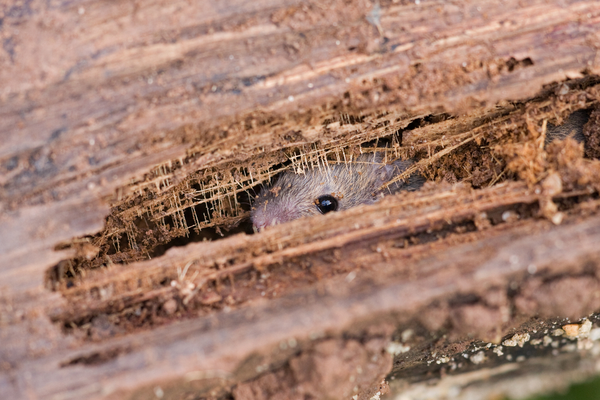
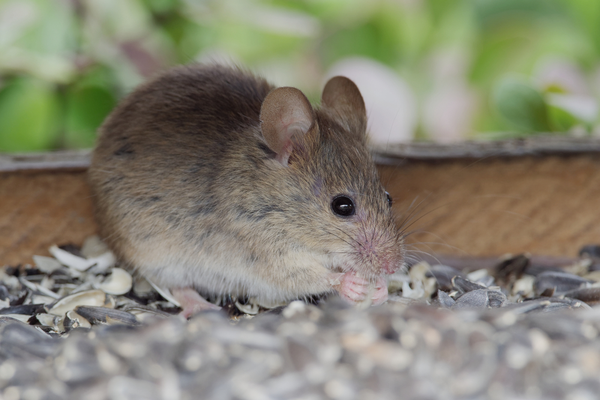
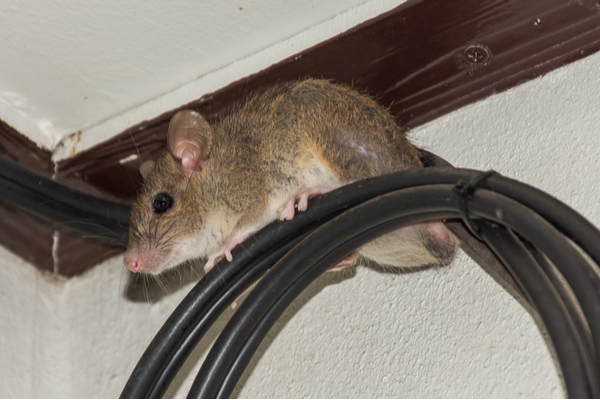
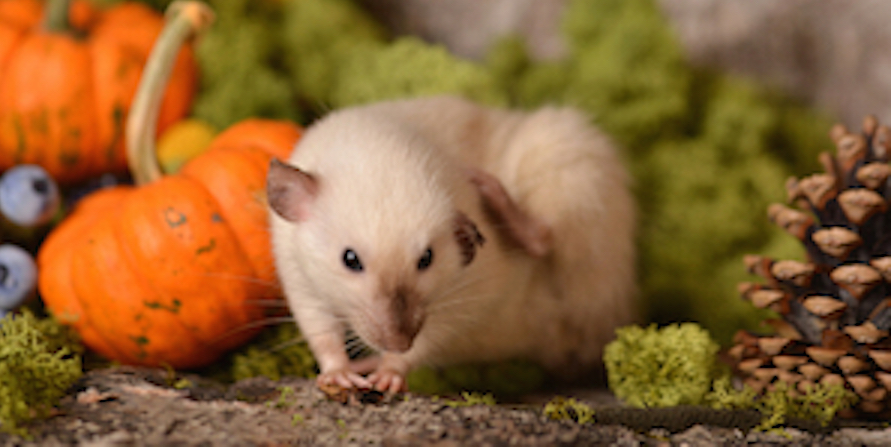
 Most of the heat that escapes from homes leaks out of gaps around door and window frames. Rodents can feel this warm air escaping from outside, and they can follow it back to its source. Mice and rats are notorious for their ability to
Most of the heat that escapes from homes leaks out of gaps around door and window frames. Rodents can feel this warm air escaping from outside, and they can follow it back to its source. Mice and rats are notorious for their ability to  Your home transfers outdoor air in and out from more places than you’d think. Pretty much every water-using appliance needs to have a
Your home transfers outdoor air in and out from more places than you’d think. Pretty much every water-using appliance needs to have a  While you’re out checking your vent covers, take a look around the foundation of your home. Look for cracks where you can see light from inside, or where you can feel heat escaping. Pay special attention to areas of the home where utilities like water and gas enter the building. These access points tend to have gaps juuust wide enough for rodents to enter.
While you’re out checking your vent covers, take a look around the foundation of your home. Look for cracks where you can see light from inside, or where you can feel heat escaping. Pay special attention to areas of the home where utilities like water and gas enter the building. These access points tend to have gaps juuust wide enough for rodents to enter.  You didn’t think you’d get away with only cleaning the outdoors, did you? Sorry, but once you’re finished de-cluttering your yard, it’s time to move inside. Messy basements and attics attract rodents looking for warm, dark, and hidden places. The more space they have to move around in secret, the more attractive your home will look to them. One of the best ways to make sure rats leave you alone is just to demonstrate that you know they’re there.
You didn’t think you’d get away with only cleaning the outdoors, did you? Sorry, but once you’re finished de-cluttering your yard, it’s time to move inside. Messy basements and attics attract rodents looking for warm, dark, and hidden places. The more space they have to move around in secret, the more attractive your home will look to them. One of the best ways to make sure rats leave you alone is just to demonstrate that you know they’re there. 
